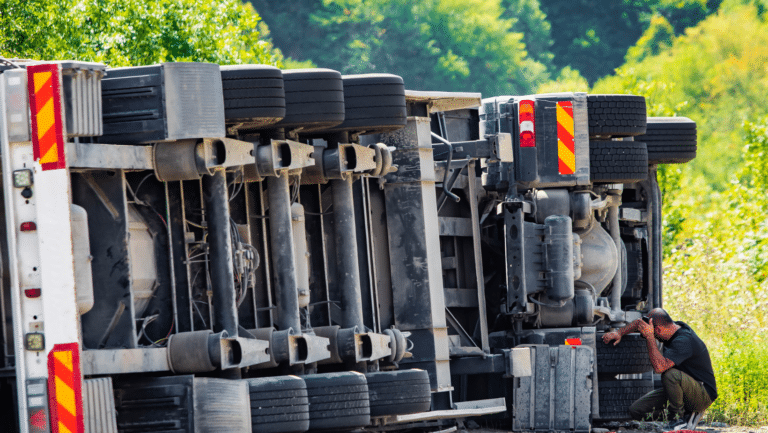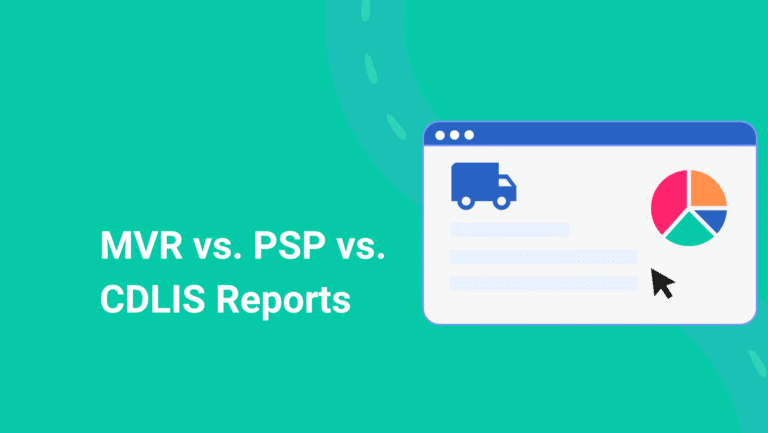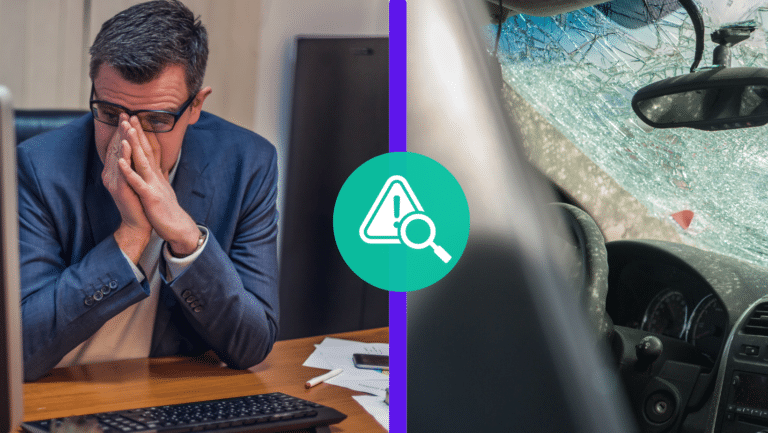CVSA Roadcheck 2024: How To Prepare?

With the CVSA Roadcheck 2024 approaching, fleet managers must ensure their vehicles and drivers are ready for inspection. This year, International Roadcheck is scheduled for May 14th-16th, 2024, with two main focus areas – tractor protection systems and alcohol and controlled substance possession.
Additionally, law enforcement will be on the lookout for hazardous driving behaviors and common commercial motor vehicle violations.
CVSA Roadcheck 2023 Results
During the previous year, law enforcement officers and inspectors carried out a total of 53,847 inspections, revealing the following key findings:
- The vehicle out-of-service rate was 19.3%, and the driver out-of-service rate was 5.8%.
- There were 15,932 vehicles, 5,020 drivers, and 205 HM out-of-service violations.
- The top vehicle out-of-service violation was for brake systems, the top driver out-of-service violation was for hours of service, and the top HM out-of-service violation was for loading.
- There were 2,798 cargo securement violations.
- ABS violations were discovered on 1,264 power units, 2,428 trailers, and four buses.
- Inspectors issued 931 safety belt violations.
- Inspectors placed CVSA decals on 12,284 power units, 4,681 trailers, and 305 motorcoaches/buses for 17,270 decals.
Top Driver and Vehicle Violations in the US
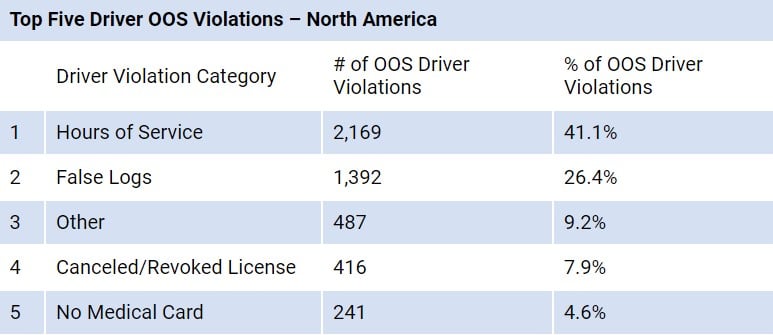
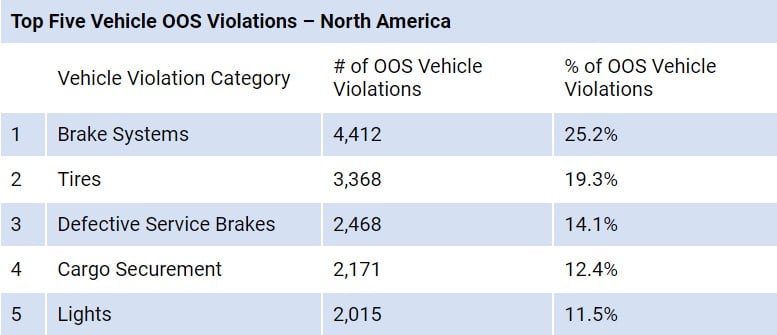
Data from CVSA Releases 2023 International Roadcheck Results
How To Prepare For CVSA Roadcheck 2024
Getting ready for this year’s inspection is crucial for ensuring the safety and compliance of your fleet. Here are some essential steps to prepare effectively:
Conduct Pre-Roadcheck Inspections: Before the Roadcheck begins, thoroughly inspect each vehicle in your fleet to identify and address potential safety issues. Pay close attention to critical components such as brakes, tires, lights, and cargo securement.
Educate Drivers: Train drivers on CVSA inspection procedures and what to expect during Roadcheck. Emphasize the importance of conducting thorough pre-trip inspections and adhering to all safety regulations while on the road.
Review Driver Qualifications: Review that all driver files are up-to-date. Ensure all drivers have valid commercial driver’s licenses (CDLs) and medical cards. Also, check their driving records to identify violations that may raise red flags during inspections
Ensure Proper Documentation: Ensure all necessary documentation, including vehicle registration, insurance certificates, and driver logs, is up-to-date and easily accessible. Organize paperwork in a way that facilitates quick and efficient inspection by authorities.
Address Hours-of-Service Compliance: Review driver logs to ensure compliance with hours-of-service regulations. Ensure that drivers are taking required rest breaks and accurately recording their hours.

Utilize Technology: Consider implementing technology solutions such as electronic logging devices (ELDs), telematics systems, and MVR Monitoring to monitor vehicle performance and driver behavior. These tools can help identify issues proactively and demonstrate compliance during inspections.
Communicate with Drivers: Keep drivers informed about Roadcheck dates and expectations. Encourage open communication so that they feel comfortable reporting any safety concerns or issues that arise during inspections. Read more: 5 safety messages for drivers to reduce accidents.
By following these steps and ensuring that your vehicle and documentation are in order, you can increase your chances of passing the CVSA Roadcheck inspection successfully.
Manage Driver Compliance
At Embark Safety, we understand the complexities behind FMCSA regulations. Our intuitive MVR Monitoring platform is tailored to simplify driver compliance and streamline the driver qualification process.
By connecting to state DMVs, MVR Monitoring reports carriers on negative changes to employees’ MVRs, such as DUIs and suspensions. Additionally, it helps manage license and medical card expirations, streamlines driver qualification files, and more. Interested in seeing how our solution can help you improve compliance? Contact us
*We are not lawyers. Consult with your legal counsel to ensure your processes and procedures meet/ or exceed safety standards and compliance regulations. Please read our legal disclaimer.

